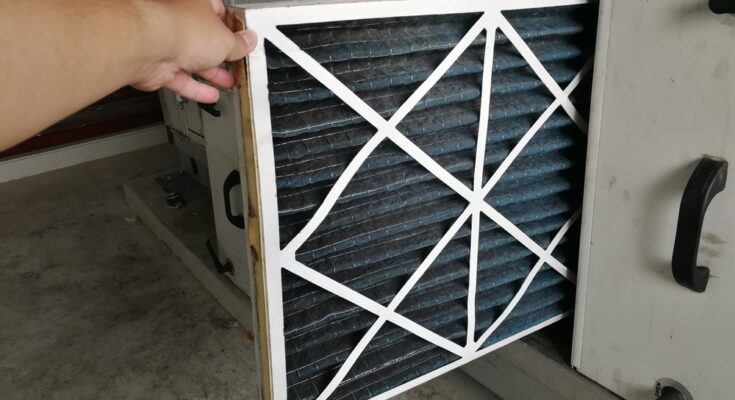When it comes to maintaining a comfortable and healthy indoor environment, selecting the right HVAC filter is crucial. The filter you choose directly impacts air quality and energy efficiency, so understanding the different options available is essential. Whether you are upgrading your current system or setting up a new HVAC in Sandy Springs, knowing which filter suits your home can make a significant difference in performance and air purity. Filters come in various types, each designed to meet different needs based on your home’s layout and air quality requirements.
The Importance of HVAC Filters
HVAC filters serve a critical function by trapping airborne particles like dust, pollen, and pet dander before they circulate through your home. This improves air quality, which is particularly beneficial for those with allergies or respiratory issues. Additionally, a clean filter ensures that your HVAC system runs efficiently, preventing damage to the unit and reducing energy costs over time. Understanding the differences between filter types helps you make an informed decision.
Types of HVAC Filters
Several types of HVAC filters are available on the market, each offering different levels of filtration and performance. Below are the most common types:
· Fiberglass Filters
Fiberglass filters are the most basic and inexpensive option. They are disposable and designed to protect your HVAC system from large particles, like dust and debris, but they offer minimal filtration for smaller particles, such as allergens or bacteria. This makes them a good choice for homeowners without significant air quality concerns.
· Pleated Filters
Pleated filters offer a higher level of filtration compared to fiberglass filters. Due to their pleated design, these filters have a larger surface area, allowing them to capture smaller particles more effectively. Pleated filters are available in various MERV ratings, which measure the filter’s efficiency. Homes with pets, smokers, or people with allergies might find pleated filters a more suitable option.
· HEPA Filters
HEPA (High-Efficiency Particulate Air) filters are highly effective at trapping microscopic particles, including allergens, viruses, and bacteria. They are often used in medical and industrial settings but can be beneficial in residential homes that need a high level of filtration. However, these filters can sometimes reduce airflow, requiring a more powerful HVAC system to maintain efficiency.
Also read: HEPA or MERV Filters: Which is the Better Option for Your HVAC System?
· Electrostatic Filters
Electrostatic filters use an electric charge to attract and trap particles, offering an efficient and reusable option. These filters are available in both disposable and washable varieties, and they are highly effective at capturing airborne particles such as dust and smoke. Their reusability makes them an eco-friendly and cost-effective choice in the long term.
Choosing the Right Filter for Your Home
When selecting the best HVAC filter for your home, it’s important to consider factors such as your family’s health needs, the presence of pets, and how often you are willing to replace or clean the filter. For instance, homes in areas with higher levels of pollen or pollution may benefit from higher MERV-rated filters, while homes without specific air quality concerns might function well with a standard pleated or fiberglass filter. To explore more about the different types of HVAC systems and how they impact filter choices, check out this guide.
Additionally, remember that the right filter will not only improve air quality but also enhance your HVAC system’s longevity by keeping it free of dust and debris. Neglecting to replace your filter regularly can lead to system inefficiencies and increased energy bills.
Conclusion
Selecting the right HVAC filter is a key component of ensuring optimal air quality and energy efficiency in your home. By understanding the differences between fiberglass, pleated, HEPA, and electrostatic filters, you can make a choice that meets your specific needs. Whether you’re seeking basic dust protection or advanced filtration for allergies and pollutants, the best filter is the one that aligns with your home’s specific requirements. Properly maintaining your HVAC system and choosing the right filter can improve air quality, reduce costs, and extend the lifespan of your system.

